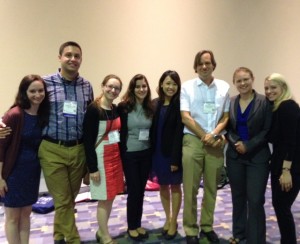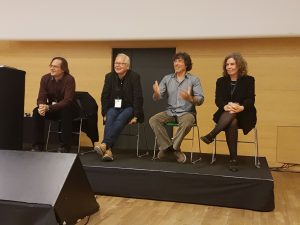The purpose of the Mental Health Recovery Research Lab (MHRRL) is to identify ways to improve the lives of persons living with mental illness through empirical research. Broadly, this includes evaluating peer-led, supportive mental health programs; identifying factors in our communities that lead to stigmatizing attitudes and behaviors, which may impede recovery via individual and structural-level discrimination; creating and assessing the efficacy of a group-based therapy to reduce self-stigma in persons with serious mental illness; considering the implementation of public policies and laws related to individuals with mental illness; and gathering personal experiences from persons with mental illness through quantitative and qualitative methods.
Mental health recovery is a multidimensional construct. For some, it is purely subjective and includes aspects of hope, a positive sense of self, and a sense of well-being. To others, functional criteria are the most important components to this definition, including independent housing, personal independence, involvement in work, school, social, and/or recreational activities, and community engagement. Our view is that a diverse array of experiences may reflect recovery, and that all of these aspects should be considered. For many individuals living with mental illness, recovery is a deeply personal and idiosyncratic process.
Thus, these projects include the investigation of both 1) public perceptions of mental illness and 2) the lived-experiences of persons with mental illness. Linking community attitudes to consumer experiences is a key overarching goal of our work.
(American Psychological Association Conference, Washington, D.C., August 2014; Symposium on Predictors and Effects of Mental Health Stigma)
(8th International Stigma Conference, Copenhagen, Denmark, September 2017. The first photo is of Dr. Yanos’ panel presentation on Narrative Enhancement and Cognitive Therapy [NECT] with colleagues from Sweden, Israel, and Denmark. The second photo at the conference is Dr. Yanos with two of his doctoral students, Joseph DeLuca and Lauren O’Connor)






